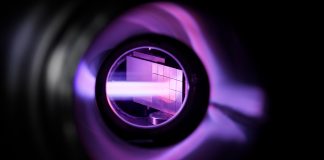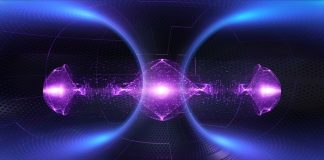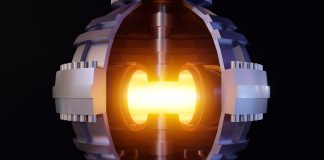DIFFER’s mission is to perform leading fundamental research on materials, processes, and systems for global sustainable energy infrastructure, in close partnership with (inter) national academia and industry.
DIFFER hosts unique user facilities for energy and materials research. Scientists from all over the globe work together on solutions for our future energy infrastructure, from optimising existing renewable sources to developing entirely new ones from scratch.
DIFFER plays an active national and international role in bringing various parties within the energy community together.
Only through collaboration can groundbreaking energy solutions for the future be realised.
Scientific themes
DIFFER’s research focuses on two scientific themes – chemical energy and fusion energy – which are also the names of our two research departments.
The fusion energy department works to unlock hydrogen fusion’s enormous potential as a clean, compact, and almost inexhaustible energy source. Fusion is seen as a major pathway to sustainable energy infrastructure.
When it comes to chemical energy, DIFFER’s research is done in the context of converting and storing sustainable energy sources into chemical forms, such as hydrogen or CO₂-neutral fuels, through processes like water splitting and CO₂ reduction.
Research facilities
Operated by a dedicated team of DIFFER experts, DIFFER hosts world-class facilities for energy research: Magnum-PSI, UPP, Ion Beam Facility, and Chemical Energy labs.
DIFFER offers other researchers access to its research facilities and helps them design experiments and operate equipment.
- Magnum-PSI is the world’s most powerful linear plasma source. This machine can simulate the conditions to which critical parts in future fusion reactors are exposed.
- Magnum-PSI is coupled to the Ion Beam Facility to examine the exposed materials. This facility can be used for ion beam analysis and ion irradiation, paving the way for in-depth studies of energy materials.
- UPP combines the potentials of a high flux magnetised linear plasma generator with operando ion beam analysis to study the dynamic and steady-state plasma-material interaction during plasma exposure.
- In the chemical energy labs, researchers focus on the synthesis and design of novel materials and processes, for example, by investigating the splitting of water into hydrogen and oxygen using electricity.
AREAS OF EXPERTISE: FUSION ENERGY
- Energy systems & control
- Integrated modelling
- Plasma edge physics and diagnostics
- Plasma material interactions
- Plasma micro-turbulence
AREAS OF EXPERTISE: CHEMICAL ENERGY
- Autonomous energy materials discovery
- Catalytic and electrochemical processes for energy applications
- Electrochemical materials and interfaces
- Plasma solar fuels devices





